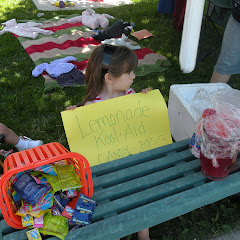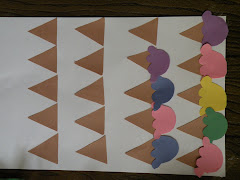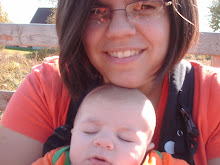Brian was recently diagnosed with Childhood Apraxia of Speech. He has been receiving speech therapy services for just under one year and has made unbelievable progress! When Pamela the speech therapist first came to our home Brian was only able to grunt and whine. Learning his vowel sounds six or seven months into therapy was torture. Then about a month ago Brian just lit up. He started using all six vowel sounds and twenty or so consonants. They are isolated, but it's a long way from grunting and whining. And then... "ball." I thought I was going to cry! Wait, I did cry! Finally my little boy seems to be coming to life. He has discovered the satisfaction in verbal communication and is beginning to use more sign language as well as his new found words. "Yes, no, ball, cat, dog, Doug, more, bug, balloon, blue, bye, boat, Bob (yes as in Sponge-bob!) vroom, ow, whoa, wee..." perhaps there are more. For now, that's what I can list. I am filled with such pride and joy. I can tell Brian is too. He has come so far- and there's still a ways to go. But together we're going to get there. *****
I've copied the definition, explanation and treatment for Childhood Apraxia of Speech below this post because speech delays can often be confused with language delays. In Brian's case it's not just that "he's a boy and he'll have a language boom when he's three years old or so..." I hope to help others understand my little boy a little better.
"Apraxia, a motor-speech programming disorder, is diagnosed when a child has difficulty executing and sequencing the skilled motor movements needed for speech... the apraxic child finds it difficult to produce and combine phonemes (the smallest unit of speech sound) to create words, phrases, and sentences at will. These children hear the words but are unable to put the consonants and vowels togetherto form the problem syllables and words. They understand the words, and they know what they want to say, but they cannot execute the sounds and movements properly to form the words.
"The best generally accepted ways to help the apraxic child is through speech-language therapy utilizing repetitions and drills, conversation with the child filling in blanks and finishing thoughts, and modeling speech after someone offering the proper prompts and cues.
"Children can learn through the repetition of songs and rhymes and even the repetition of a sound they are comfortable with. Reading with the child and engaging him in a familiar story...in a theraputic setting or home..."
- Woliver, Robbie. Alphabet Kids: From ADD to Zellwegger Syndrome.
Tuesday, June 30, 2009
Subscribe to:
Post Comments (Atom)
Shabby background
From One Mess...

..to another

Last Day of Pre-K

First Day of Pre-K

"Like a Big Pizza Pie...."

Lemonade Stand

Father's Day

Productivity

June 8-???
Reading

Ice cream

Incentives
Suggested Reading
- Mere Christianity by C.S. Lewis
- Homeschooling: The First Year by Linda Dobson
- My Sister's Keeper by Jodi Picoult
- The Baby Whisperer by Tracy Hogg



That makes so much sense! Speaking of BRian, did Mom ever give you the "thing" I made for him to help facilitate being understood? Let me know.
ReplyDeleteI am so glad you are getting good help with Brian! I know Wendy felt so happy with the help she got with Kate back when she was that age. I also know how satisfying it is to finally have real words and real communication with your child since Annabelle is such a little talker now!
ReplyDelete